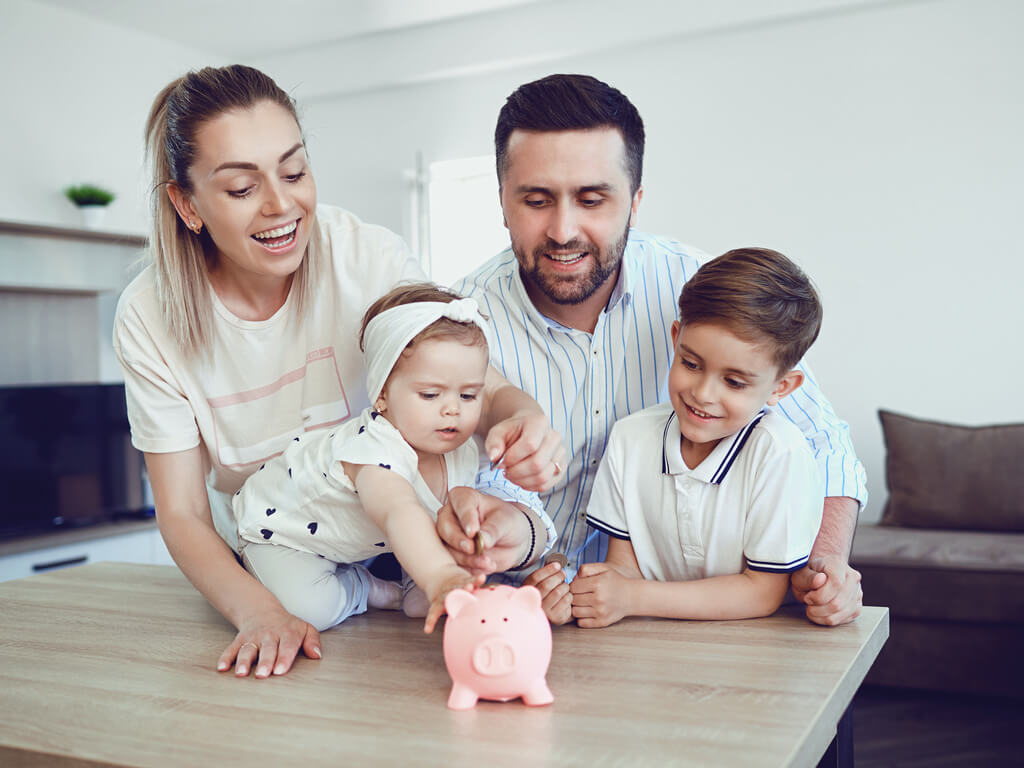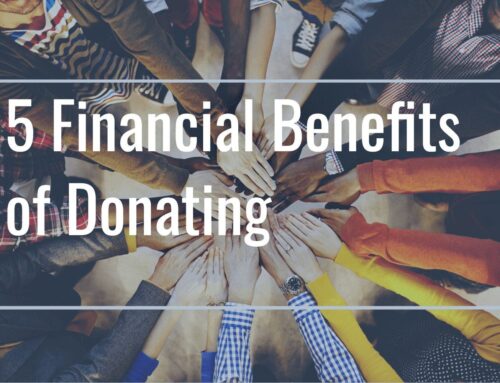The Coronavirus pandemic has left millions of people hurting financially. Over the past few months, the Federal Government has distributed billions of dollars to help the American people. Groceries and rent are among the most needed monetary needs for Americans. However, many Americans are now going back to work and the National U.S. Unemployment rate is now back down to 6 percent.
The American Rescue Plan Stimulus Payments
In the recently passed American Rescue Plan, American citizens were promised economic impact payments of up to $1,400 per person, based on qualifications. Your payment status is based on your income reported when you last filed your taxes. Single people who filed with an income of less than $75,000 qualify for the full $1,400 amount. Joint filing situations and other tax situations can qualify you for even more free money.
How Should I Use My Stimulus Check?
If your income is now back to a healthier and more manageable level, the latest round of stimulus checks might be an added bonus. It may be tempting to spend this extra cash on something frivolous, but you should take this opportunity to be financially smart.
This blog from FM Bank will outline twelve tips for how to spend your stimulus check in financially smart ways.
1. Use it Like An Emergency Fund
The purpose of an emergency fund is to help you make the minimum payments on your bills, credit card payments, and other essential monthly expenses. Stimulus check payments can help you live securely, even if you’re out of work due to the pandemic.
This should be your first strategy for spending your stimulus money. You must take care of your essential living expenses before you start paying down your debts. And you must take care of your debts before you think about investing.
2. Pay Off Monthly Expenses

Insurance payments, apartment rent, water and heating bills, electric bills, gas bills, and more are monthly expenses for most Americans. Even if you’re charged biannually for insurance, your payments will be less of a burden if you pay a portion of it every month.
If you’re behind in any of your bills, now is the time to catch up.
3. Pay Down Your Debt
Credit card debt, when left unmanaged, becomes a heavy financial burden. Compounding interest can quickly turn a small debt into a never-ending mountain. Student debt is another rampant problem. College is expensive, and as of January 2021, EducationData.org reported there are approximately 43.2 million Americans with student debt with an average debt amount of $39,351 each.
Mortgage debt is another facet of the problems caused by COVID-19. If you are or were out of work at the beginning of the lockdowns, then you likely have a few months of payments you still need to meet. You might have qualified for some mortgage protections if you had a Federally-backed mortgage, but if you have a private mortgage you might have either had no protections or had to enter forbearance.
Whenever you have the chance to pay down your debt, you should take it. The more you can pay off now, the less debt will accumulate from interest. If you’re back on your feet, you can use your stimulus checks to pay off delinquent payments and catch up on your mortgage or other loans.
If you need further assistance managing your financial obligations, talk to a local Tennessee financial advisor with F&M Bank.
Other Strategies for Paying Off Debt

The first thing you should do is make sure you have a healthy budget and begin paying off your smallest debts first. While you’re focusing on paying off your smallest debts, you should also keep up your minimum payments on your other debts. Once your first debt is gone, take the amount you were paying on that debt and put it towards the next one. This strategy is called a debt snowball, and it can quickly help you get traction on paying your debts.
Another strategy is called a debt avalanche. Instead of starting with the smallest amount, you start with the debt that has the highest interest rate. Once you pay off the highest interest rate, move on to the next highest until they’re all paid off.
4. Invest in Stocks
If you’re lucky enough to qualify for stimulus money and not need it immediately, you may want to start investing it. However, in these uncertain times, you should avoid losing all of your money in a large investment. Look for low-risk investment opportunities and focus on earning small dividends before investing in large accounts.
You can also work with a financial advisor to help you find the right stocks for your money.
5. Invest in Real Estate

Another popular investment opportunity is to go into real estate investing. There are many options for investing in real estate. You can explore mortgage/seller financing, hard money loans, or simple property investment.
There’s a lot to be said about real estate investing, so if you’d like to learn more about taking your first step into the real estate market in Tennessee, set up an appointment with one of our financial advisors.
6. Buy Life Insurance
With all of the unexpected consequences of COVID-19, security for yourself and your loved ones is more important than ever. If you don’t have life insurance yet but have retirement options set up, it might be a good option for you.
However, most life insurance policies are long-term investments. If you’re more interested in building your immediate resources, you might consider another option.
7. Add to Your Retirement Fund
If your current finances are in a steady place, you should keep contributing to your retirement fund. Saving money is often one of the first things to go when times get tough. So, you might have had a few months go by without adding to your retirement.
Of course, you may have other obligations or financial goals, but if you would like to focus on getting back on track, your stimulus payments can help. You can even use this money to contribute to your 401 k plan.
Start a Traditional IRA or a Roth IRA
Now, if you haven’t started saving for retirement, you should. At F&M Bank, you can open a traditional or Roth individual retirement account (IRA). By depositing your money into one of these accounts, you will not only be saving for the future, but you can also qualify for tax credits.
8. Renovate Your House
Looking for something to do with your time while quarantine is still going on? Maybe it’s time to put your money to work and renovate your home. Home remodeling and renovations will help you build equity in your home and can improve your home’s value.
9. Take Care of Your Mental Health

2020 was a difficult and stressful year to say the least. The most surefire way to recover and get back to living a life you enjoy is to take care of your mental health. Due to the limits of health insurance coverage for mental health, it’s easy to put off getting the help you need.
There’s no shame in seeing a counselor, a psychiatrist, a psychologist, or another trained professional. Investing in yourself can be just as important as investing in your finances.
10. Improve Your Physical Health
Maybe getting in shape is one of your current goals. And if you have the time and money, you should invest in yourself and improve your physical health. It might be time to hire a personal trainer or a nutritionist to help you get active again after COVID.
Additionally, taking care of your physical health can help you feel more confident, improve emotional regulation and even strengthen your decision-making skills. Taking charge of your health can help you get more momentum for your life when you feel too overwhelmed to tackle your finances.
11. Build Up Your Emergency Fund
The emergencies and emergency responses from last year might have left you dipping into your rainy-day funds. You might not have even had one. Maybe you picked up a new job, or several new jobs to help you make ends meet.
Hopefully, you’re in a more secure position right now. But, maybe you’re still living from paycheck to paycheck. If you have enough stable income right now, take your stimulus check as an opportunity to build up your emergency savings.
An emergency fund should have enough to help you cover the bare minimum for at least three months worth of expenses. If you can save more, then that’s even better.
Learn more about building an emergency fund in our article:
12. If You Have Children, Start a College Fund

Or if you already have a college fund growing, keep contributing to it. College sneaks up quickly on parents. The more you can save to help your child pay for school, the less debt they will have to deal with in the future.
What Do I Do If I Don’t Have My Stimulus Payment Yet?
The IRS has created a tracking system so you can follow your check’s payment status on their website. If you provided a direct deposit method on your forms when you filed a tax return, you should have received your payment. You will most likely have to wait longer for a paper check to come in the mail.
If you have not received the first or second payment for economic recovery, you can file for a recovery rebate credit. Visit the IRS website to learn more about tracking and receiving your payment.
Get More Financial Advice From
Tennessee Financial Advisors at F&M Bank
Tennessee Financial Advisors at F&M Bank
We hope these tips will help you as you put your stimulus money to use. Know that our financial advisors are here to help you take control of your financial future, even during these uncertain times. If you have any questions or need someone to talk to about investment, wealth management, savings accounts, refinancing and so on, give us a call!



